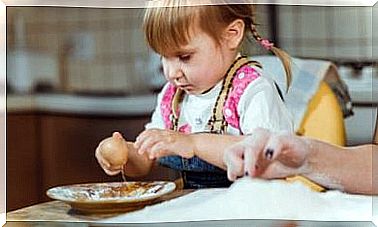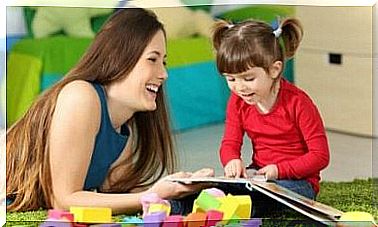Parents Should Not Argue In Front Of Children
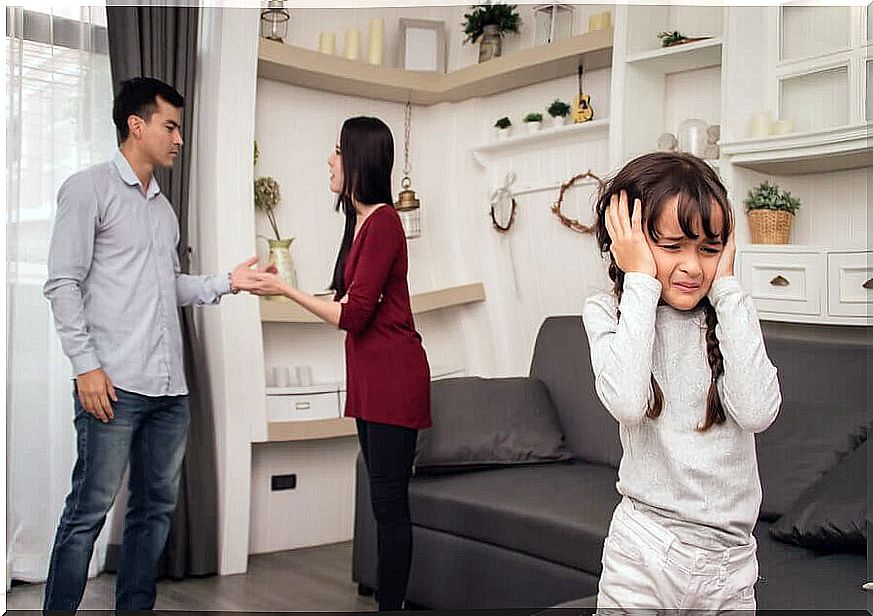
It is normal for parents to disagree and argue from time to time. Sometimes couples don’t share the same opinion, but they can still talk calmly. But if not, remember: parents shouldn’t argue in front of the kids.
Children often worry when their parents argue, which makes them feel scared, sad, or angry. Even when the conversation ends, they can hide a feeling of guilt.
Likewise, conflict between parents can affect a child’s mental health and the development of their social and emotional skills. In addition, it can affect academic performance and their ability to form future relationships.
In fact, one study has found that unresolved conflicts between parents have a powerful impact on children’s early development, mental health and the possibilities of their future lives.
Why Parents Shouldn’t Argue In Front Of Their Kids
It is not a good idea to argue with the children for the following reasons:
1. Children are emotionally insecure
Disagreements provoke a feeling of insecurity in children about the stability of the family. Children who are exposed to a lot of fights may worry about divorce.
In addition, it can make it difficult for them to have a sense of normality towards the family as quarrels can happen for unpredictable reasons and at any time.
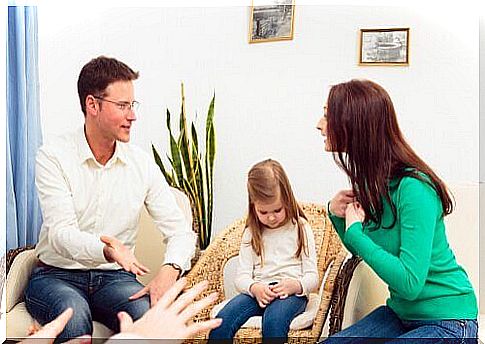
2. The Parent-Child Relationship Can Be Affected
Conflicts are stressful for children and no doubt for parents as well. A parent who suffers from stress cannot spend quality time with his or her children. Meanwhile, it can also be difficult for them to show warmth and affection when they are angry and upset.
3. Quarrels create a stressful environment
Listening to frequent or intense discussions is not pleasant for children and results in stress. These situations can affect their physical and psychological well-being as well as the normal and healthy development of the child.
Also, a study has found that stress associated with living in a high-conflict home can affect a child’s cognitive performance.
Researchers have found that children of parents who often argue have more trouble regulating their attention and emotions. In addition, their ability to solve problems effectively is also compromised.
Parents should not argue with their children
Children often worry about the meaning of their parents’ quarrels and the consequences that may result. This causes them to come to their own conclusions and think that arguments mean that their parents no longer love each other.
However, if parents argue, it doesn’t mean they don’t love each other or want a divorce. Conflicts are usually just a way to blow off steam when they’ve had a bad day or disagree.
In fact, children of all ages can be affected by an argument between parents. In general, the consequences appear through high levels of aggression, hostility and violence. Children may exhibit negative self-esteem in addition to episodes of anxiety and depression.
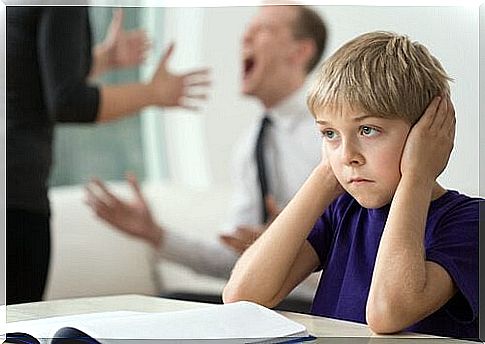
How do children feel when their parents argue?
In general , children feel angry when they see or hear their parents arguing. It is difficult for them to hear the screaming and unpleasant words. And seeing the parents bewildered and out of control can make children feel unprotected and scared.
The little ones may worry about one of the parents during the discussion. Their fear is that you feel mostly sad or hurt by the other party.
Sometimes parents’ quarrels make children cry or cause physical discomfort. For example, they may have stomach pains from nerves, or they may even have trouble sleeping or concentrating at school.
Finally, remember that parents’ arguments can sometimes be healthy if it helps to express their feelings to resolve situations rather than bottle them up.
While we are aware that it is complicated, we should try as much as possible not to argue in front of our children as it can definitely affect them emotionally.


